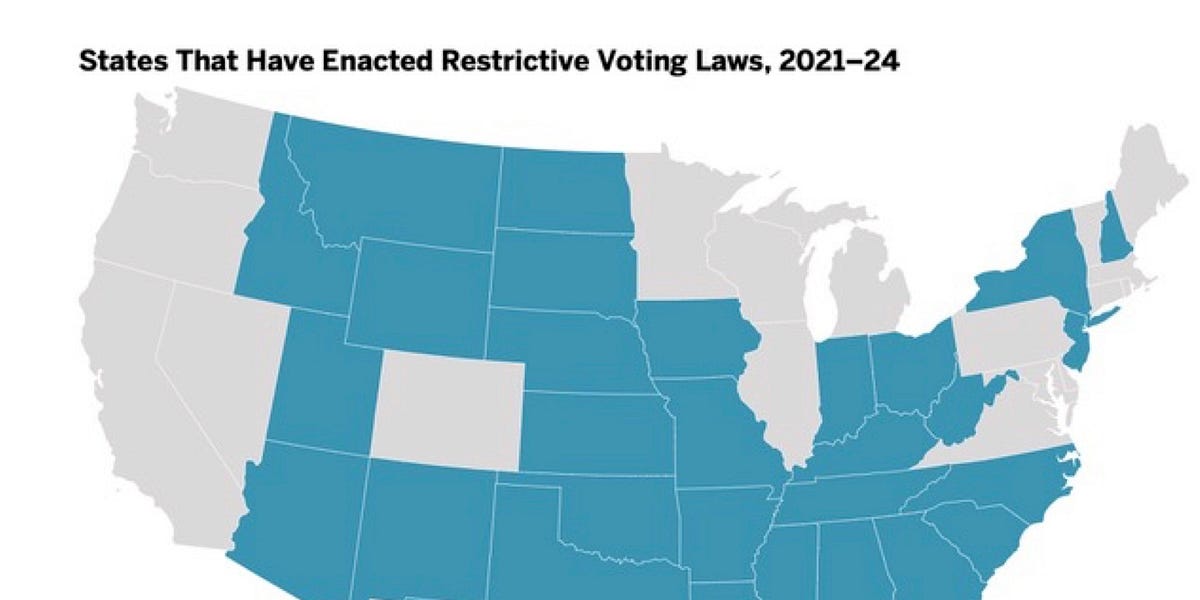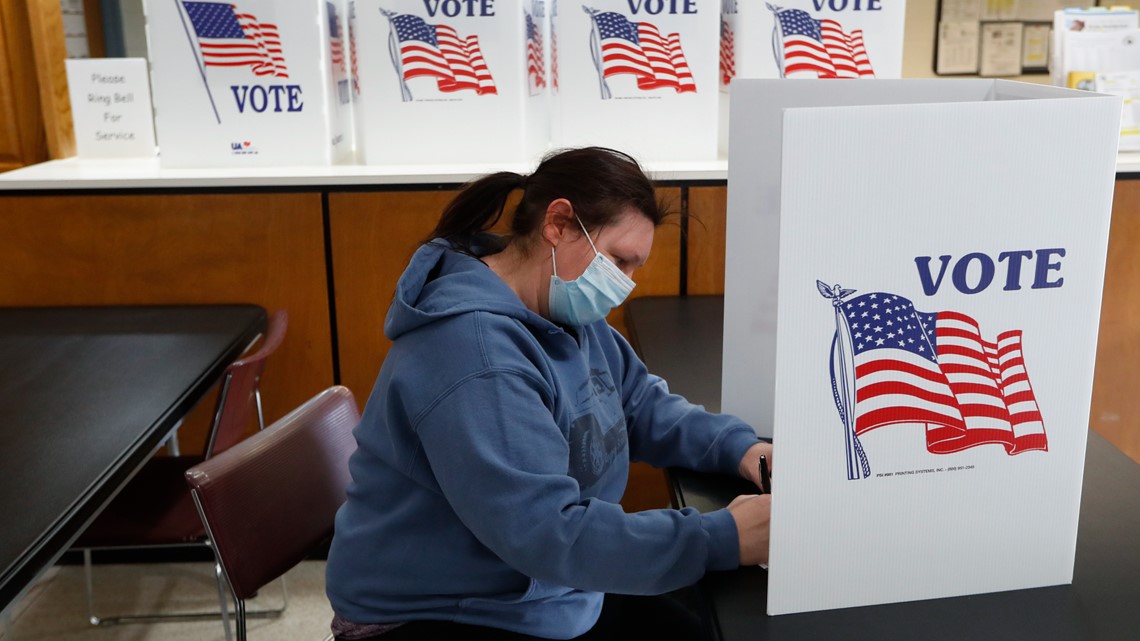- Joined
- Oct 22, 2002
- Messages
- 47,203
- Location
- Frozen in Michigan
- Gender
- Old Fart
- Basic Beliefs
- Don't be a dick.
Not Republican election workers, Republican vote challengers.Couldn't you find similar problems in pretty much any election, that might have lead to a different outcome? Rejection of ballots for various technical/clerical reasons is nothing new. Is the claim here that Republican election workers across the country conspired to "steal the election" (much like Democrats supposedly did in 2020, at least according to a certain sore loser)? Interesting about Washington state. Kamala won that state handily, despite the supposed racist shenanigans. How would the Republican election workers handling those ballots know who is white or black (or other)? Do people routinely declare their ethnicity on their ballots? I don't recall that being the case.
TRUMP LOST. Vote Suppression Won.
Here are the numbers from investigative reporter Greg Palast...hartmannreport.com
Trump lost. That is, if all legal voters were allowed to vote, if all legal ballots were counted, Trump would have lost the states of Wisconsin, Michigan, Pennsylvania and Georgia. Vice-President Kamala Harris would have won the Presidency with 286 electoral votes.
And, if not for the mass purge of voters of color, if not for the mass disqualification of provisional and mail-in ballots, if not for the new mass “vigilante” challenges in swing states, Harris would have gained at least another 3,565,000 votes, topping Trump’s official popular vote tally by 1.2 million.
Stay with me and I’ll give you the means, methods and, most important, the key calculations.Thoughts?Here are key numbers:
If the purges, challenges and ballot rejections were random, it wouldn’t matter. It’s anything but random. For example, an audit by the State of Washington found that a Black voter was 400% more likely than a white voter to have their mail-in ballot rejected. Rejection of Black in-person votes, according to a US Civil Rights Commission study in Florida, ran 14.3% or one in seven ballots cast.— 4,776,706 voters were wrongly purged from voter rolls according to US Elections Assistance Commission data.
— By August of 2024, for the first time since 1946, self-proclaimed “vigilante” voter-fraud hunters challenged the rights of 317,886 voters. The NAACP of Georgia estimates that by Election Day, the challenges exceeded 200,000 in Georgia alone.
— No fewer than 2,121,000 mail-in ballots were disqualified for minor clerical errors (e.g. postage due).
— At least 585,000 ballots cast in-precinct were also disqualified.
— 1,216,000 “provisional” ballots were rejected, not counted.
— 3.24 million new registrations were rejected or not entered on the rolls in time to vote.
There are also the uncountable effects of the explosive growth of voter intimidation tactics including the bomb threats that closed 31 polling stations in Atlanta on Election Day.

EXPLAINER: What is an election challenger? What do they do?
We spoke with Ottawa County Clerk Justin Roebuck about the role election challengers play.
AndWhat do election challengers do while the polls are open?
Election challengers can operate in polling places, early voting sites or absent voter ballot processing facilities. When operating at one of these locations, election challengers are given the power to challenge certain aspects of the election process, but there are also limitations to what they can do.
"Those individuals do have a little bit more authority, I should say, because they can actually sit behind the election inspectors as the election inspectors are doing their work, they can watch things. They cannot handle any election material, they cannot touch any election material and they cannot talk to voters, but a challenger can be present in the precinct, sort of observing that whole process," Roebuck said.
And in addition to observing the process, Roebuck said that in rare instances, an election challenger can challenge a voter's eligibility status for multiple reasons including if they are not a registered voter.
EXECUTIVE SUMMARY
Forty-six states have laws that allow private citizens to challenge the eligibility of prospective voters, either onor before Election Day. Although these laws are more than a century old, they have drawn increased public scrutiny in recent years as the number of citizen poll-watchers and challengers in elections continues to grow.1
With the 2012 general election fast approaching, these “challenger laws” will likely be in the spotlight onceagain.Recent controversies involving partisan and discriminatory voter challenge efforts have prompted manyelection officials, state lawmakers, and even courts to reexamine these antiquated state laws. States have substantially cabined the role of challengers over the past decade and, earlier this year, a federal appeals court upheld a 30 year-old consent decree barring the Republican National Committee from focusing its challenge efforts in communities of color.2
Yet, even as courts and lawmakers have sought to curb parties’ challenge efforts,3 independent groups ofprivate citizens have pushed ahead with their own plans to challenge voters in many states. In 2011, a Houston-area organization called True The Vote announced its goal of recruiting one million people to serve as poll-watchers during the 2012 general election.4 The group has been supporting local activists’ efforts tochallenge voters in dozens of states over the past few months.5 In May, one of these local activists challenged over 500 voters in Wake County, North Carolina, most of whom were voters of color.6 Although local election officials later dismissed almost all of these challenges for insufficient evidence, the incident nevertheless highlights the kinds of problems that often occur when untrained private citizens seek to police access to the polls


